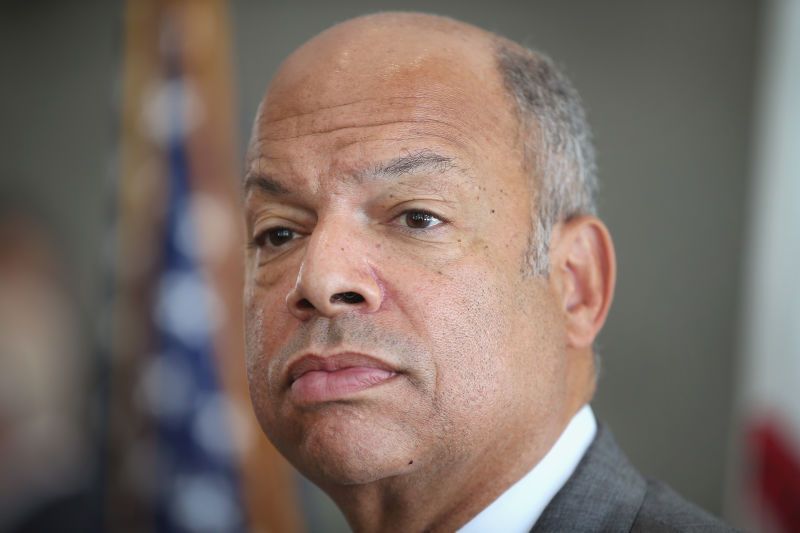“I am not done,” Valenciano shoots back.
She was joined by several others affiliated with her group, a statewide coalition of immigrant youth organizations.
She later said in an interview that the coalition had repeatedly contacted the Department of Homeland Security to seek clarity on the Priority Enforcement Program -- a new system for local and state law enforcement to partner with federal immigration officials. The program, sometimes referred to as PEP-Comm, was announced last November to replace the controversial Secure Communities Program.
In response to her comments, Johnson said the Secure Communities Program "created a lot of legal and political controversy, because that program was rounding up people based on mere warrants, and not convictions. It was also creating litigation. ... So, we’ve ended the Secure Communities Program ...”
But Valenciano interrupted him again, saying, “No, you have recreated it through the PEP-Comm program.”
“I disagree,” Johnson replied.
Valenciano continued venting loudly about deportation policies until she was escorted out by campus guards. “Don’t do that,” Johnson told them initially. “Let her stay.”
The disruption continued, though, and she was ultimately removed from the venue while protesters outside the forum banged on doors, chanting, “Shut down ICE! Shut Down ICE!” Valenciano later said the purpose was to let the DHS chief know that “the community is going to push back.”
Secure Communities began in 2008 as a collaboration between ICE and local law enforcement agencies, to facilitate deportation of individuals arrested for crimes. In November, President Barack Obama issued a directive to end the controversial program. Activists have stressed that deportations can separate families and cause upheaval in individuals' lives.
Under ICE's PEP program, fingerprints of individuals booked for criminal violations are automatically sent to the FBI for criminal history and warrant checks; that biometric data is simultaneously sent to ICE. If ICE deems the individual to be a “priority for removal” based on these records, they can ask the local law enforcement agency to notify them before releasing the individual from custody.
But immigrant rights organizations say PEP contains similar pitfalls to Secure Communities. In a statement issued just after the new program was announced, the California Immigrant Policy Center said that under the new system, “some immigrants will be transferred into ICE custody after contact with local police, and therefore many immigrant communities will still fear reporting crime to local police.”
The issue of police cooperation with immigration authorities has been a topic of debate in recent months, following the July 1 shooting death of Kate Steinle on San Francisco’s Pier 14. In that case, controversy centered on how the San Francisco Sheriff’s Department handles ICE requests.
Sergey Mann, a junior economics major at UC Berkeley who serves as public relations manager for the Berkeley Forum, said his organization seeks to encourage student dialogue with influential figures.
“There was a large group of people gathered outside, protesting. The secretary tried to engage with them,” Mann said in a phone interview. “They basically said, 'We won’t talk to you until you agree to end all deportations.' ”
In the past, the Berkeley Forum has hosted big names, including Sen. Rand Paul, (R-Kentucky) and venture capitalist Peter Thiel, whose appearance was cut short last December when protesters stormed the stage.
For events such as Johnson’s talk, which drew a large crowd, he said the typical format is to ask members of the audience to submit their questions on cards at the start of the program.
There’s no intentional filtering of topics, Mann said, but “we just want to make sure that they are good questions.”

